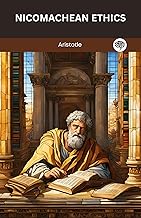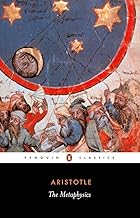
How to Read Aristotle's Books on Reason
How to Read Aristotle's Books on Reason
Estimated Reading Time: 10-12 minutes
Introduction
Aristotle, one of the most influential philosophers in Western history, was born in 384 BCE in Stagira, Greece. A student of Plato and a teacher to Alexander the Great, Aristotle's contributions span various fields, including ethics, metaphysics, politics, and natural sciences. His exploration of "Reason" is particularly significant, as it forms the cornerstone of his ethical and metaphysical thought.
Aristotle's perspective on Reason is unique and valuable because he sees it not just as a cognitive faculty but as an essential component of human flourishing. In his works, particularly the "Nicomachean Ethics" and "Metaphysics," Aristotle delves into the nature of reason, its role in ethical decision-making, and its place in understanding reality. This exploration is set against the backdrop of a society that valued rational thought and the pursuit of knowledge, making Aristotle's insights timeless and relevant even today.
Why Aristotle's Perspective Matters
Aristotle's approach to Reason is distinctive for several reasons. First, he emphasizes practical wisdom, or "phronesis," which integrates rational thought with ethical action. Unlike other philosophers who may prioritize abstract reasoning, Aristotle grounds his ideas in real-world applications, making his philosophy accessible and applicable to everyday life.
Moreover, Aristotle's concept of the "Golden Mean" illustrates how Reason guides individuals toward moderation and balance in their actions. This stands in contrast to thinkers like Descartes, who focused on doubt and certainty as the foundation of knowledge. Aristotle's emphasis on the interconnectedness of ethics and reason has had a lasting impact on various fields, including moral philosophy, psychology, and political theory.
Overview of Recommended Books
Nicomachean Ethics
The "Nicomachean Ethics," named after Aristotle's son Nicomachus, is a foundational text in ethical philosophy. In this work, Aristotle investigates the nature of the good life and the role of virtue in achieving it. Central to his argument is the idea that Reason is essential for ethical behavior and that virtuous actions arise from rational deliberation.
Main Themes and Arguments:
- Virtue and Character: Aristotle posits that virtues are habits developed through practice and that they exist as a mean between extremes. For example, courage is the mean between recklessness and cowardice.
- The Good Life: He defines happiness (eudaimonia) as the ultimate goal of human life, achieved through the cultivation of virtue and the exercise of Reason.
- Practical Wisdom: Aristotle introduces the concept of "phronesis," which is the ability to make sound judgments in ethical matters, highlighting the importance of context and experience.
Historical Context and Significance: Written during a time when Greek society was grappling with questions of morality and ethics, the "Nicomachean Ethics" reflects Aristotle's response to the moral relativism of his contemporaries. His emphasis on a rational approach to ethics laid the groundwork for future philosophical inquiry.
Key Insights and Takeaways:
- The Golden Mean: Strive for moderation in all aspects of life to achieve balance and harmony.
- Importance of Community: Recognize that ethical behavior is not solely an individual pursuit but is deeply intertwined with the well-being of the community.
- Role of Education: Understand that developing virtues requires education and practice, as they are not innate but cultivated over time.
Why Read This Book: The "Nicomachean Ethics" is essential for anyone seeking to understand the interplay between Reason and ethics. It offers practical guidance on how to live a virtuous life, making it relevant for modern readers grappling with moral dilemmas.
Metaphysics
Aristotle's "Metaphysics" is a profound exploration of existence, reality, and the nature of being. In this work, Aristotle seeks to understand the fundamental principles that govern the universe, emphasizing the role of Reason in comprehending these principles.
Main Themes and Arguments:
- Substance and Essence: Aristotle distinguishes between substance (what something is) and essence (the nature of that thing), arguing that understanding these concepts is crucial for grasping reality.
- Causality: He introduces the Four Causes (material, formal, efficient, and final) as a framework for understanding why things exist and how they come to be.
- Potentiality and Actuality: Aristotle explores the concepts of potentiality (the capacity to change) and actuality (the realization of that capacity), emphasizing the dynamic nature of existence.
Historical Context and Significance: Written in a period of philosophical inquiry that sought to understand the cosmos, "Metaphysics" represents a shift from mythological explanations of existence to a rational, systematic approach. Aristotle's insights laid the foundation for future metaphysical thought and influenced countless philosophers, including medieval scholastics and modern thinkers.
Key Insights and Takeaways:
- Understanding Reality: Develop a nuanced understanding of the nature of existence by examining the underlying principles that govern it.
- Causation in Life: Apply the Four Causes to everyday situations to better understand the reasons behind events and changes in your life.
- Embrace Change: Recognize the importance of potentiality and actuality in personal growth, understanding that change is a fundamental aspect of existence.
Why Read This Book: "Metaphysics" is crucial for anyone interested in the nature of reality and the philosophical underpinnings of existence. It challenges readers to think deeply about the principles that govern their lives and the universe.
How These Books Complement Each Other
The "Nicomachean Ethics" and "Metaphysics" are intricately connected, with each work addressing different aspects of Reason. While the "Nicomachean Ethics" focuses on practical applications of Reason in ethical decision-making, "Metaphysics" delves into the theoretical foundations of existence. Together, they provide a comprehensive understanding of how Reason operates in both moral and metaphysical contexts.
Reading these works in tandem allows for a deeper exploration of how ethical considerations arise from our understanding of reality. Aristotle's emphasis on the importance of virtue in achieving a good life in the "Nicomachean Ethics" is grounded in the metaphysical principles he outlines in "Metaphysics." This relationship enriches the reader's appreciation of Aristotle's philosophy as a cohesive system.
Who Would Benefit from Reading These Books
These works are ideal for a diverse audience, including:
- Students and Academics: Those studying philosophy, ethics, or metaphysics will find these texts foundational to their understanding of Western thought.
- General Readers Interested in Reason: Anyone curious about the nature of ethics and reality will benefit from Aristotle's accessible yet profound insights.
- Professionals Seeking Practical Wisdom: Individuals in leadership or decision-making roles can apply Aristotle's principles to enhance their ethical reasoning.
- Anyone Looking for Personal Growth: Readers interested in self-improvement and moral development will find actionable insights in both texts.
Recommended Reading Order
- Start with: Nicomachean Ethics - This book provides a practical foundation for understanding ethical reasoning and the role of virtue in achieving a fulfilling life.
- Continue with: Metaphysics - After grasping ethical principles, delve into the theoretical underpinnings of existence to enrich your understanding of reality.
- Advanced reading: Secondary Literature on Aristotle - Explore commentaries and analyses to deepen your understanding of Aristotle's influence and the development of his ideas.
Tips for Getting the Most Out of Each Book:
- Take notes while reading to capture key insights and questions.
- Engage with discussion groups or online forums to explore different interpretations.
- Reflect on how Aristotle's ideas apply to your own life and ethical dilemmas.
Conclusion
Aristotle's contributions to the theme of Reason are invaluable and continue to resonate in contemporary discussions of ethics and metaphysics. His exploration of practical wisdom in the "Nicomachean Ethics" and the foundational principles of existence in "Metaphysics" offers readers a comprehensive framework for understanding both moral and philosophical questions.
By engaging with these texts, readers are encouraged to reflect on their own lives, cultivate virtues, and seek a deeper understanding of reality. As you embark on this journey through Aristotle's works, remember that the pursuit of knowledge and ethical living is a lifelong endeavor. Dive into these classics and discover the timeless relevance of Aristotle's insights.
Featured Books

Nicomachean Ethics
by Aristotle
Published: 350 BC
Along with Plato and Socrates, Aristotle (384-322 B.C.) is one of the triumvirate of philosophers responsible for the establishment of Western philosophy as it exists today. Socrates, Plato and Aristotle were among the first to refine philosophical thought, and Socrates is credited with devising the Socratic Method as a way to argue and debate points rationally. The Ancient Greek philosophers further stressed the importance of virtue and stoicism, advocating the improvement of one’s self through constant learning and knowledge. These teachings and practices formed the foundation for philosophy and psychology as fields of study.Still, Aristotle was very much his own philosopher. Though he studied at Plato’s famous academy, he was not hesitant to counter or criticize Plato’s philosophical stances on certain issues. Aristotle was the most renowned Ancient Greek philosopher for nearly 2,000 years.Aristotle's book on ethics is perhaps the most important work on the subject as it further explores the Socratic question on how men should best live.

Metaphysics
by Aristotle
Published: 350 BC
Aristotle's probing inquiry into some of the fundamental problems of philosophy, The Metaphysics is one of the classical Greek foundation-stones of western thought The Metaphysics presents Aristotle's mature rejection of both the Platonic theory that what we perceive is just a pale reflection of reality and the hard-headed view that all processes are ultimately material. He argued instead that the reality or substance of things lies in their concrete forms, and in so doing he probed some of the deepest questions of philosophy: What is existence? How is change possible? And are there certain things that must exist for anything else to exist at all? The seminal notions discussed in The Metaphysics - of 'substance' and associated concepts of matter and form, essence and accident, potentiality and actuality - have had a profound and enduring influence, and laid the foundations for one of the central branches of Western philosophy. In this edition Hugh Lawson-Tancred's lucid translation is accompanied by a stimulating introduction in which he highlights the central themes of one of philosophy's supreme masterpieces. For more than seventy years, Penguin has been the leading publisher of classic literature in the English-speaking world. With more than 1,700 titles, Penguin Classics represents a global bookshelf of the best works throughout history and across genres and disciplines. Readers trust the series to provide authoritative texts enhanced by introductions and notes by distinguished scholars and contemporary authors, as well as up-to-date translations by award-winning translators.